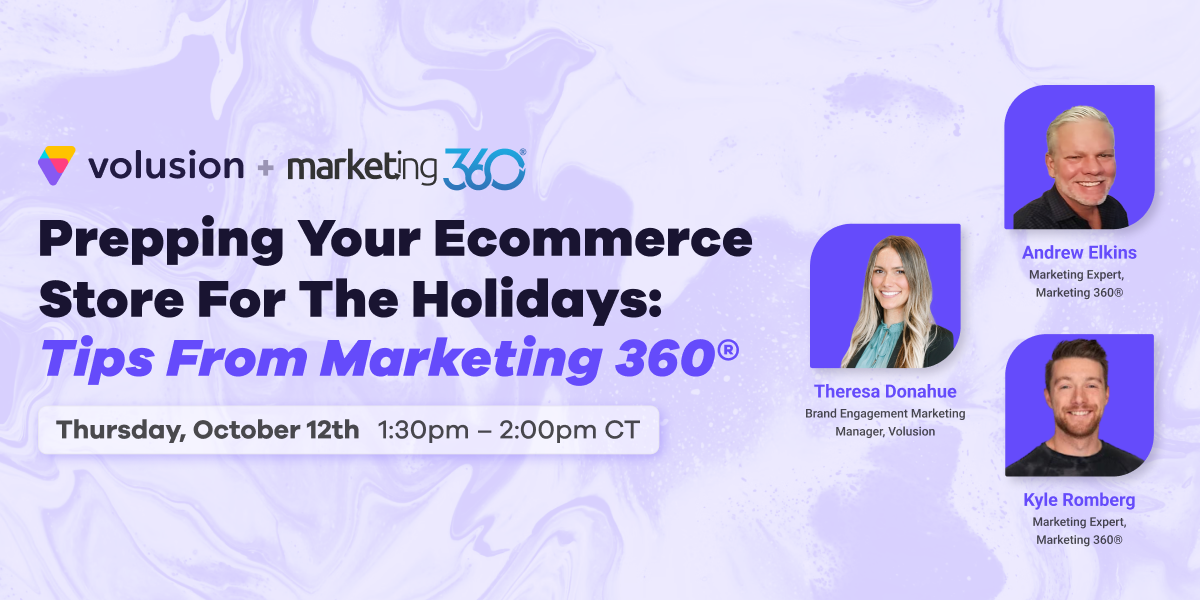
Hiring a new employee is a big decision. No matter what role they’ll be in, they’ll have an effect on how your business runs and the overall atmosphere your other employees work in. A bad hire will waste time, money and set your business back for the time it takes to find a replacement. But good hires are one of the most important factors to a company’s overall success.
Skills and activities listed on a resume are certainly important but relying too heavily on them can be a big mistake.
When hiring someone new, obviously the first thing to look to is the work history described on their resume and whether they have relevant experience. But as Beth Tucker, CEO of KNF&T Staffing Resources explains, “Skills and activities listed on a resume are certainly important but relying too heavily on them can be a big mistake.”
To find the right candidate, you need to look beyond how they look on paper. We’ve collected advice from a number of hiring managers with extensive experience in hiring new employees. Here are the ten most important things they say you should pay attention to when hiring a new employee.
1. Their Basic Manners
Someone can be entirely competent for the role, but if they’re rude and inconsiderate to your other employees, or worse, your customers, then their attitude can offset anything good about the quality of their work. It can be hard to pin down a job candidate’s manners in a job interview though; people are likely to be on their best behavior when they come to the office to meet you.
Do at least one interview outside of the office, such as a breakfast or lunch interview.
As a way to get a glimpse of a candidate’s personality in action, Laura Handrick, HR Analyst at Fit Small Business encourages employers “to do at least one interview outside of the office, such as a breakfast or lunch interview.”
“I've seen otherwise stellar candidates talk down to wait staff, talk with their mouth full, smack gum, ignore others at the table (using a cell phone) or crack inappropriate jokes during the interview,” she explains.
By interacting with them a less formal context, you can gain some insights into how they generally behave and see any warning signs that might alert you their not being a good choice.
2. Their Integrity
The job market is competitive and, unfortunately, some candidates do exaggerate or misrepresent their skills as a way to get their foot in their door. That means the resume alone may not provide an accurate snapshot of the knowledge or experience a candidate really has.
As Andrew Schrage, the Hiring Manager at Money Crashers says, “some folks tend to add unnecessary verbiage on their resume, so it'll be important to dig deep to understand if the candidate actually possesses all of the talents and skills or not.”
You can use the interview not only to confirm if their actual experience matches what you need, but also to get an idea of their integrity. A job candidate that oversells themselves in a job interview may display dishonesty on the job as well.
The ability to reflect on areas you need to improve is a great attribute in itself.
In contrast, says Arron Richmond of High Speed Training, “What I think is great is when a candidate acknowledges their own weaknesses. The ability to reflect on areas you need to improve is a great attribute in itself.”
A candidate that’s willing to admit what they don’t know so they can learn will be much more valuable to your business than one that claims to know more than they do.
3. Their Motivation
One of the interview questions recommended by Syed Obaid, Founder and CEO of The Jacket Maker is “What motivates them?”
While money is a perfectly understandable motivator — we all have to work to live — you ideally want to find a candidate that feels some draw to the business and job beyond the salary. Someone that cares about building a career, has a passion for what your company does or genuinely enjoys the kind of work they’re applying to do will be a more committed candidate than someone who spends their time on the job just waiting for the workday to end.
4. Their Preparation
A good job candidate won’t just see their role in the interview as answering questions you ask, they’ll know the interview should go both ways.
If the candidate spends a lot of the meeting asking about the company and position, it shows that they have a real eagerness to learn about your business.
“The candidate should come to the interview with a prepared list of questions to ask,” Andrew suggests. If they spend a lot of the meeting asking about the company and position, it shows that they have a real eagerness to learn about your business and that they’re willing to put a little extra work in beyond the bare minimum required for a job interview.
5. Their Loyalty
High turnover rates are the bane of hiring managers and bad for the company as a whole. As Steven Benson, Founder and CEO of Badger Maps explains it “an organization is made up of its people, and people who have been around for awhile are invaluable to the culture and success of an organization."
It's important to hire people who are loyal and looking to be a part of something for the long term.
“Someone with loyalty, commitment, and grit is likely to create more value for a company than someone who is brilliant and seems to have a great resume. It's important to hire people who are loyal and looking to be a part of something for the long term,” he adds.
While it’s impossible to tell for sure during a job interview whether or not a candidate is likely to stick with your company in the long term, you can see some evidence in the level of interest they show in the job interview (see also #4) and their overall job record. If they have a history of leaving every job they start within a year and don’t have a good explanation that could be a bad sign.
6. Their Adaptability
While a big part of hiring is making sure a job candidate is qualified for the job they’ve come in for, in practice most jobs end up spanning responsibilities beyond what’s laid out in the job description.
Amanda Davis of Vaco points out that “sometimes job descriptions don’t tell the whole story and you will need someone who is flexible and able to roll with the punches.”
Adaptability means a candidate will be able to come into the position and make it his or her own.
“Adaptability means a candidate will be able to come into the position and make it his or her own,” she explains. “People who are adaptable are usually much more willing to work to find a solution, rather than a problem.“
To get a feel for how adaptable a job candidate is, ask about how they’ve responded in past jobs when tasks came up that they didn’t expect, or present an example of unexpected responsibilities one of your employees has faced and ask what they would do in that scenario.
7. Their Self-Awareness
This is another quality Amanda recommends looking for in a candidate. “Self-aware people tend to have a high emotional quotient.” As a result, they “don’t perceive everything as a personal criticism and are willing to grow and learn, especially in a new position.”
If you have valid feedback, sharing it with them can give you insights into how they’ll react on the job.
Self-awareness is something you should be able to spot in the way a candidate answers questions about how they take feedback. It may also come out if you express honest concerns about something in their job history or provide constructive criticism for their resume, cover letter or performance in the interview. Don’t make criticisms just to see what they’ll do, but if you have valid feedback, sharing it with them can give you insights into how they’ll react on the job.
8. Any Signs of Discriminatory Thinking
If you bring someone in that discriminates against co-workers or customers based on race, gender, age, sexuality, marital status or really anything, you’ll have personnel and customer service problems because of it. Some job candidates won’t reveal their problem prejudices early enough for you to avoid hiring them, but do your best to pay attention to any signs of discriminatory thinking.
Laura recalls an incident where someone made it through the interview without a problem, but “on day one of employment told me he knew how to interview — and never hired anyone 'newly wed or nearly dead.'”
“We had to terminate him because we couldn't have him managing diverse retail staff with that kind of discriminatory attitude!” she clarified.
For the sake of your other employees and customers, be on the lookout for red flags that suggest a candidate will bring unwanted prejudices into the office with them.
9. Their Fit with Your Company
When asking experts the most important things to look for in a job candidate, this was by far the answer we got the most.
David Niu, CEO and Founder at TINYpulse shared his story of learning that lesson the hard way in the early days of his company, “For one particular employee, we didn’t find the right fit, but we thought he was good enough. At the end of the day, it created such a negative vacuum in our office that we had to let him go.”
Hiring decisions are based on our cultural values. In fact, we put that right in the job description.
Now, he says, “Hiring decisions are based on our cultural values. In fact, we put that right in the job description.”
Amber Hunter, Director of People Strategy for Helpside, recommends hiring managers “put together a profile of what your ideal employee would be like. Include both professional experience and personality traits that you hope to find that will enhance your company culture.”
That will both help you craft a better job posting and come into interviews with a clearer idea of what to look for.
Beth’s advice to vet for cultural fit is to “spend time on questions that address it head-on. Behavioral-based interview questions are a great way to do this.”
Obviously, this one is important! No one works in a vacuum. You aren’t just looking for someone who can do the job; you’re looking for someone who’s good for the company.
10. Your Gut.
So much on this list is about what you can learn from the candidate themselves, but there’s one other important thing for you to pay attention to during the hiring process according to Sacha Brant, Founder and CEO of Sassy Lasses: your gut.
It’s easy to let interviews and shiny resumes sway you, but your intuition can keep you from hiring those you may not feel are compatible with the team.
“Listen to it,” she says. “It’s easy to let interviews and shiny resumes sway you, but your intuition can keep you from hiring those you may not feel are compatible with the team.”
If something about a candidate feels off to you during the interview, don’t talk yourself out of the feeling. It’s probably there for a reason. On top of everything else you consider when making your hiring decision, factor in what your gut is telling you.
Hiring is hard. You only have so much information to work with and it’s ultimately a pretty high-stakes decision. But if you take time to really look beyond what someone looks like on the page and consider these other important factors the experts recommend, you’re more likely to make the right choice and end up with a great new hire.
Have any advice for hiring new employees? Feel free to share it in the comments!











